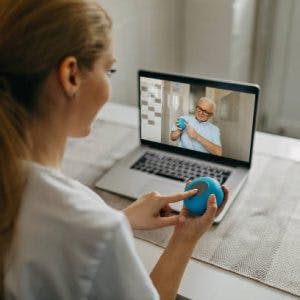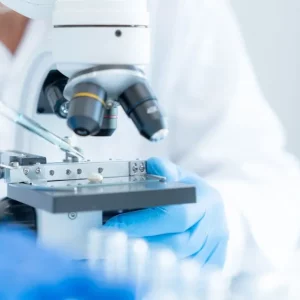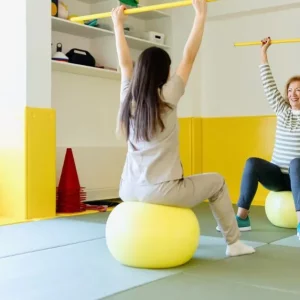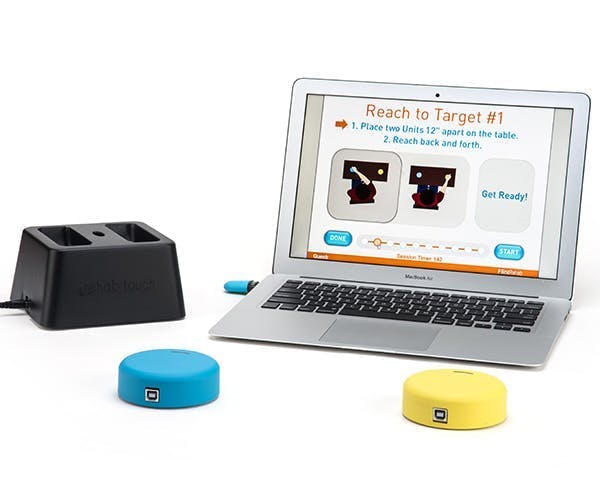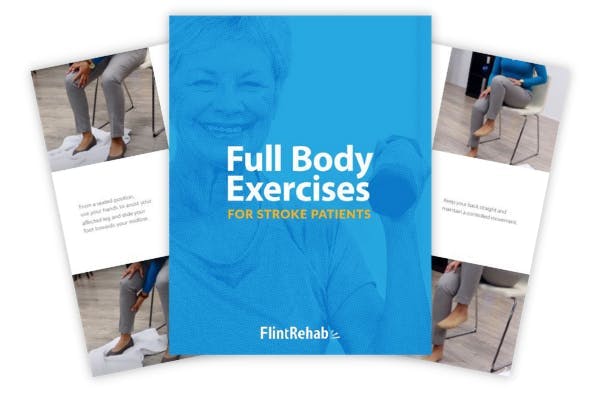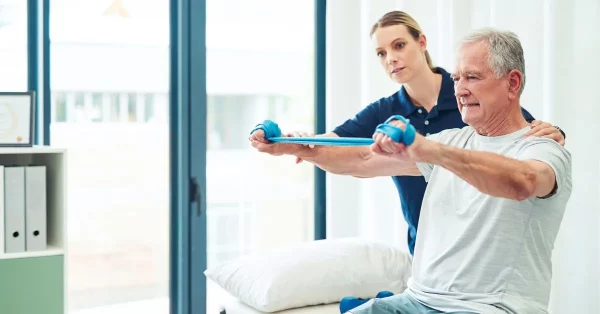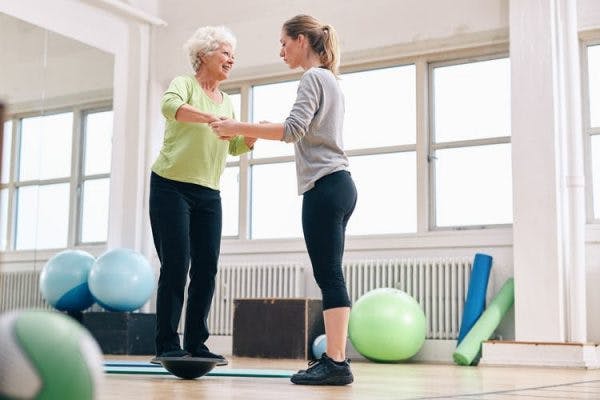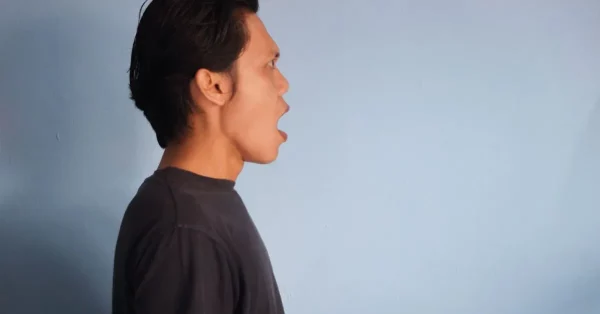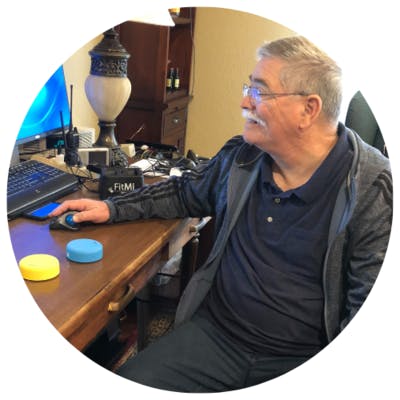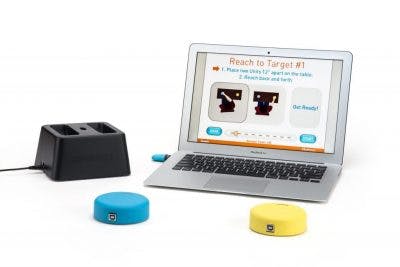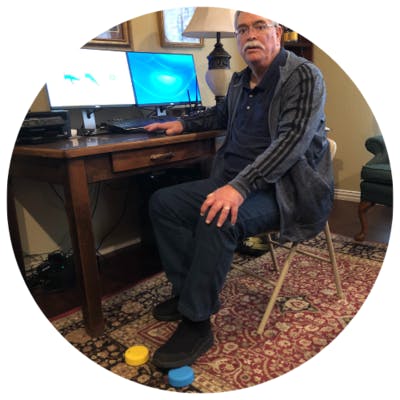Natural remedies for stroke recovery offer a gentle way to heal the body and boost functional outcomes. Best of all, many natural remedies can be used from the comfort of home.
Alternative treatments often appeal to stroke survivors that prefer to avoid the potential adverse side effects of medication. While modern medicine can play an important role in recovery, the following solutions can help boost recovery from stroke naturally.
Use the links below to jump straight to any section:
- Brain-boosting foods
- Supplements to enhance recovery
- Chinese herbal medicines and supplements
- Traditional Chinese medicine treatments
- Other natural remedies
Healthy Foods and Supplements as Natural Remedies for Stroke Recovery
Lifestyle choices, including a consuming a healthy diet and engaging in physical activity, can play a large role in improving outcomes both before and after a stroke occurs. Therefore, it makes sense that dietary changes and supplements are among the top natural remedies for stroke recovery.
As always, survivors should be sure to consult their doctor before making any major dietary changes or taking new supplements. This is essential as the survivor’s medical team can provide advice regarding whether certain nutritional interventions are recommended based on the individual’s unique circumstances.
Brain-Boosting Natural Foods
Food can play a vital role in promoting stroke recovery. In fact, studies have shown that consuming energy-boosting and protein-rich foods in the first week after stroke is associated with greater independence with activities of daily living (ADLs) at hospital discharge. Furthermore, a 2021 study found that survivors who followed specific dietary recommendations throughout the first few months of their recovery experienced greater gains in muscle mass and functional independence.
While foods high in energy and protein can help improve independence, it is also important to look for foods that promote brain-derived neurotrophic factor (BDNF). This protein helps the brain heal itself through the process of neuroplasticity by supporting the growth of new brain cells and connections within the brain.
With this in mind, here are a few of the healthiest foods for stroke recovery:
- Blueberries. An excellent source of many vitamins, minerals and anti-oxidants, blueberries can help boost energy and manage cholesterol. Blueberries have also been shown to help increase BDNF levels after brain injury in a mouse model.
- Salmon. Fatty fish, including salmon, are a great source of protein and omega-3 fatty acids. Omega-3s have been shown to help normalize BDNF levels and enhance neuroplasticity.
- Red wine. Drinking a small glass of red wine may increase BDNF concentration due to the presence of resveratrol, a polyphenol that can reduce neural inflammation. For those who choose not drink alcohol or are advised against it, red grapes also contain resveratrol and may have similar benefits.
Developing a healthy diet is an excellent way to promote stroke recovery. It is important to ensure that any significant dietary changes are approved by the survivor’s medical team. Furthermore, always consider any texture recommendations for survivors with dysphagia (difficulty swallowing) before adding new foods.
Recovery-Boosting Supplements
Vitamins and other supplements are often among the most popular natural remedies after stroke. Here are a few of the best evidence-based supplement recommendations for stroke recovery:
- Vitamin D. Supplementing with vitamin D can promote a significant improvement in stroke outcomes after 3 months.
- Probiotics. Enhancing gut health with a regular probiotic supplement may boost brain health and reduce the risk of infections and complications post-stroke.
- Curcumin. Due to its neuroprotective, anti-inflammatory, and antioxidant properties, curcumin can help improve stroke recovery outcomes.
Important note: Survivors should always exercise caution and check with their doctor before taking new supplements, as they can interfere with medications or aggravate preexisting medical conditions. However, with their doctor’s approval, survivors may experience an enhanced recovery from stroke by using supplements.
Traditional Chinese Medicine
Outside of dietary changes and supplements, many natural remedies for stroke recovery can be found by looking into traditional Chinese medicine (TCM). Traditional Chinese medicine encompasses a number of interventions, including the use of Chinese herbs to enhance health and wellness.
Studies have demonstrated using TCM in conjunction with Western medicine (also referred to as modern medicine) can further improve functional independence when compared to drawing from TCM or Western medicine alone. Therefore, it is often recommended to use modern medicine and TCM together for optimal outcomes.
Chinese Herbal Medicines and Supplements
While Chinese herbs cannot reverse the effects of stroke alone, they can help improve overall health and energy levels, which may accelerate recovery. Noteworthy herbal medicines and supplements that may enhance stroke recovery include:
- NeuroAiD (MLC601): A medication derived from TCM that includes the combination of nine herbal ingredients, NeuroAid has been shown to significantly shorten recovery times. In fact, one 2023 study found that survivors using NeuroAid made similar functional achievements in 6 months as other survivors made over an 18 month period.
- Chuanxiong Rhizoma: One of the most frequently prescribed Chinese herbs, Chuanxiong Rhizoma has been shown to improve cognitive impairments post-stroke.
- Xiaoxuming decoction: Another frequently used Chinese medication that combines 12 herbs, Xiaoxuming decoction has been demonstrated to improve outcomes in both hemorrhagic and ischemic stroke. It can play a role in improving both motor functions and functional independence.
Important note: While some traditional Chinese herbs can be purchased over the counter, others require a doctor’s prescription. Regardless, it is vital for survivors to discuss any supplements they are considering with their doctor, as some traditional Chinese herbs and medicines may be natural blood thinners or have other detrimental effects.
Traditional Chinese Medicine Treatments
Traditional Chinese medicine may also include a number of manual treatments. These treatments can be used in conjunction with herbal medicines and/or alongside modern medicine techniques to boost recovery.
- Acupuncture. This technique, which involves placing small needles at specific points on the body, may improve a number of stroke effects, including dysphagia, pain, spasticity, cognition, and/or depression. It can even play a role in promoting neuroplasticity, the process through which the brain can heal itself after stroke.
- Massage. Therapeutic massage, including a specific technique used in traditional Chinese medicine called tuina, can help improve motor function and relieve spasticity when combined with conventional physical therapy.
- Tai Chi. Rooted in traditional Chinese medicine, tai chi involves gently and intentionally moving the body through certain postures. Practicing tai chi can improve motor function and balance, and may even help alleviate post-stroke depression.
Using traditional Chinese medicine, especially when combined with modern medicine, can greatly improve outcomes after stroke. Many TCM interventions, including acupuncture and massage, can be performed at home, depending on the availability of travelling practitioners.
Traditional Chinese medicine techniques for treating stroke are gaining popularity, and current research is continuing to provide evidence for the effectiveness of these interventions. Survivors should consider talking with their medical team regarding which TCM interventions may be most beneficial for their recovery.
Other Natural Remedies for Stroke Recovery
The list of potential natural remedies for stroke recovery that survivors can try at home is endless. However, here are a few other ideas that may help boost recovery:
- Mental practice. For survivors with motor deficits, visualizing oneself moving can help spark neuroplasticity, just as real movement would.
- Yoga. Yoga can help improve motor functions, including balance and flexibility. Additionally, it can improve the mind-body connection, help with regulating emotions, and provide mental clarity.
- Physical activity. It is vital to keep the body as active as possible after stroke, whether through rote home exercise programs or through leisure activities involving movement. This is because post-stroke exercise has been shown to improve cognition, arm function, balance and gait. Home therapy devices, such as Flint Rehab’s FitMi home therapy, can help survivors stay motivated to continue moving on a daily basis.
Promoting the brain’s adaptive rewiring process, neuroplasticity, is the key to stroke recovery. While natural remedies may boost recovery, neuroplasticity is maximized when these interventions are paired with consistent, repetitive rehabilitation. Working with a speech, occupational, and/or physical therapist can help individuals learn how to maximize neuroplasticity for stroke recovery.
Want 25 pages of stroke recovery exercises in a PDF? Click here to download our free Stroke Rehab Exercise ebook now (link opens a pop up for uninterrupted reading)
Understanding Natural Remedies for Stroke Recovery
There are a wide variety of natural remedies that can promote recovery from stroke. The best natural remedies for one individual may not be effective for another. Therefore, it is important for survivors to discuss any natural remedy they may want to try with their medical team before moving forward.
Dietary changes, traditional Chinese medicine interventions, and physical interventions can each play a role in improving recovery outcomes after stroke. Adding these to a conventional stroke treatment program can maximize improvements, allowing individuals to achieve an optimal recovery after stroke.




